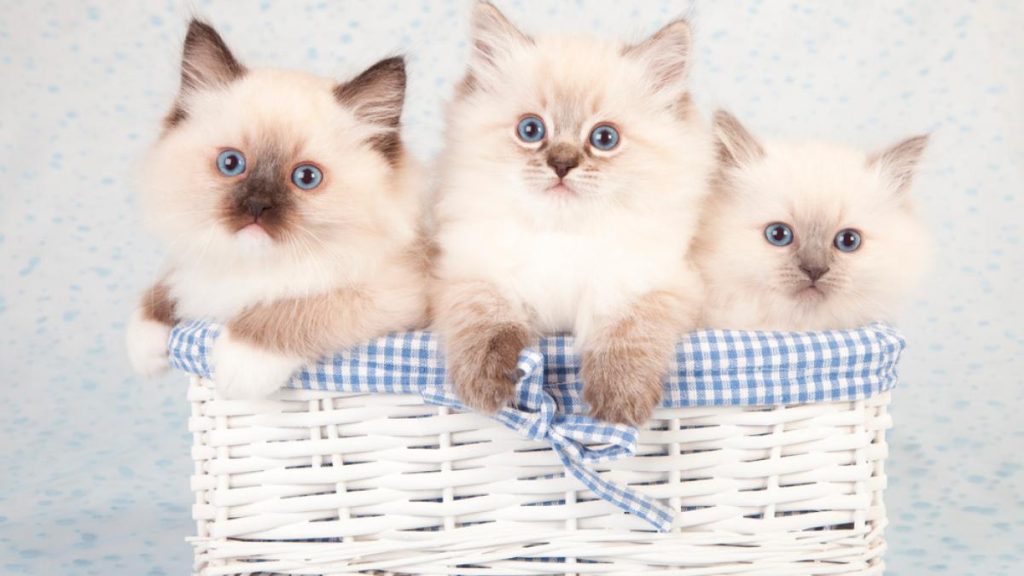Skip to content
As the name implies, the Maine Coon originated in Maine, where the breed was known as a farm cat, ship cat, and mouse, with historical records dating back to the 1850s. They’re a natural breed, and little is known about their origins. Some say the Vikings brought them to North America centuries before Columbus sailed the ocean blue.
Others say they’re the descendants of longhaired cats belonging to Marie Antoinette, sent to America in advance by the doomed queen, who had hoped to escape there. Sea captains may have brought back longhaired cats that mated with local shorthaired cats.
One thing is for sure— the Maine Coon is not the result of a mating between a cat and a raccoon, even if their brown tabby coat and furry ringed tail suggest that biological impossibility. The resemblance is, however, how the cats got the “Coon” part of their name. Maine Coons who didn’t have the brown tabby coat were called Maine Shags. The first published reference to a Maine Coon comes from 1861 and was about a black-and-white cat named Captain Jenks of the Horse Marines.
A female Maine Coon was named Best Cat in 1895 at a cat show held in Madison Square Garden. In Boston and New York, the home-grown felines were popular exhibits at cat shows, and when the Cat Fanciers Association was formed in 1908, the fifth cat registered was a Maine Coon named Molly Bond.
The good-natured and affable Maine Coon adapts well to many lifestyles and personalities. They like being with people and have the habit of following them around, but they aren’t needy. They’re happy to receive attention when you direct it their way, but if you’re busy, they’re satisfied to just supervise your doings. Close a door on them and they will wait patiently for you to realize the error of your ways and let them in. They’re not typically a lap cat, but they do like to be near you. They also retain their skill as a mouser. No rodents will be safe in a home where a Maine Coon resides. Even if you don’t have any mice for them to chase, they’ll keep their skills sharp by chasing toys and grabbing them with their big paws. A Maine Coon also enjoys playing fetch and will retrieve small balls, toys, or wadded-up pieces of paper. They can climb as well as any cat but usually prefer to stay on ground level. That’s where their work is, after all. They’re also very smart and will happily learn tricks or play with puzzle toys that challenge their brain. Maine Coons usually enjoy a kittenish love of play well into adulthood. Males, especially, are prone to silly behavior. Females are more dignified, but they aren’t above a good game of chase. Not especially vocal, they make any requests in a soft chirp or trill.

